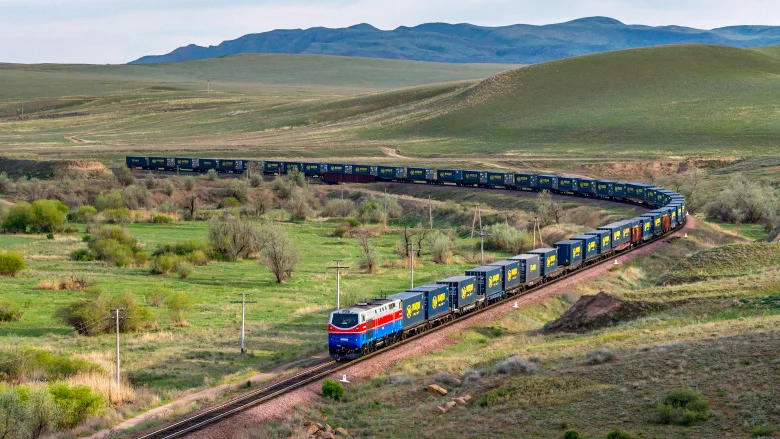BAKU, Azerbaijan, August 25. Uzbekistan is gradually becoming one of the key centers of interaction between Central Asia and the South Caucasus. In recent years, the country has been actively developing transport and economic ties with neighboring states, creating a platform for long-term cooperation in industry, logistics, and the humanitarian sphere.
Against this backdrop, on August 22, 2025, a high-level meeting took place in the Awaza National Tourist Zone (Turkmenistan) between President of Uzbekistan Shavkat Mirziyoyev, the National Leader of Turkmenistan Gurbanguly Berdimuhamedov, and President of Azerbaijan Ilham Aliyev. During the meeting, a package of documents was signed aimed at deepening cooperation in the transport, economic, and humanitarian spheres. The key outcome of the meeting was the adoption of a Joint Statement by Azerbaijan, Turkmenistan, and Uzbekistan, which institutionalizes the trilateral format of interaction.
As Uzbek expert and political analyst Ravshan Nazarov told Trend, the package of agreements institutionalizes the Azerbaijan-Turkmenistan-Uzbekistan format, moving it from one-off contacts to a sustainable platform with concrete directions. This strengthens the linkage of the South Caucasus and Central Asia through the Caspian, reduces transit risks, and increases the negotiating weight of the three states in Middle Corridor projects.
The economic bloc of signed documents covers aviation, shipbuilding, exchange cooperation, and transport-logistics initiatives, creating concrete mechanisms for the growth of the regional economy.
“In aviation, the overall potential is increasing – direct and connecting flights for Asia–Europe transit passenger flows, MRO (maintenance, repair, and overhaul), staff training, joint leasing, and spare parts pooling. This reduces costs and increases the overall reliability of the network,” Ravshan Nazarov emphasized.
The economic effect of these measures is estimated as a doubling of transit passenger flow through Uzbekistan within the next five years. The creation of joint aviation services will allow operating costs to be reduced by 15–20 percent, making transportation more competitive on the international market. In shipbuilding, cooperation is planned for fleet modernization on the Caspian, expanding ferry capacity, and increasing cargo flows through the Turkmenbashi and Baku hubs. Nazarov noted that cooperation focused on the Caspian – ferries, Ro-Ro vessels, tugboats, barges, fleet modernization, and expanded ferry capacity – is the key to growing cargo flows. For the economies of all three countries, this brings localized expertise, job creation, and import substitution.
Special attention is also given to transport and logistics cooperation, including the Middle Corridor, dry ports, and multimodal transport. Joint projects are expected to increase cargo transportation to 30,000 tons per month within the first two years of implementation.
“The connectivity of the Uzbekistan–Turkmenistan–Azerbaijan corridor is increasing, with access to the Black Sea and Europe: coordination of ports, ferries, and dry ports, the creation of a Joint Working Group and a ‘Roadmap’ on infrastructure. ‘Seamless’ supply chains are being built: unified IT solutions, constant data exchange, harmonization of phytosanitary and quarantine rules, and digital labeling, as well as the development of wholesale distribution centers,” Nazarov noted.
The implementation of these initiatives will lead to increased containerization and multimodal transport, a 20–25 percent acceleration of goods transit, and a 10–15 percent reduction in logistics costs for all corridor participants.
These agreements open opportunities for Uzbekistan to increase exports and the transit of goods through the Middle Corridor, localize production and service expertise in aviation and shipbuilding, enhance the country’s investment attractiveness, create additional jobs, and support small and medium-sized businesses through the integration of transport and logistics infrastructure.
The August 22 meeting demonstrates Uzbekistan’s steady course toward deepening cooperation with neighboring states and establishing a stable trilateral format of interaction. The signed documents create concrete mechanisms for economic, transport, and humanitarian integration.
Uzbekistan’s initiatives, together with Azerbaijan and Turkmenistan, are transforming the Middle Corridor and related routes into a reliable and competitive pathway for trade between Asia and Europe, creating conditions for the region’s long-term sustainable development.







